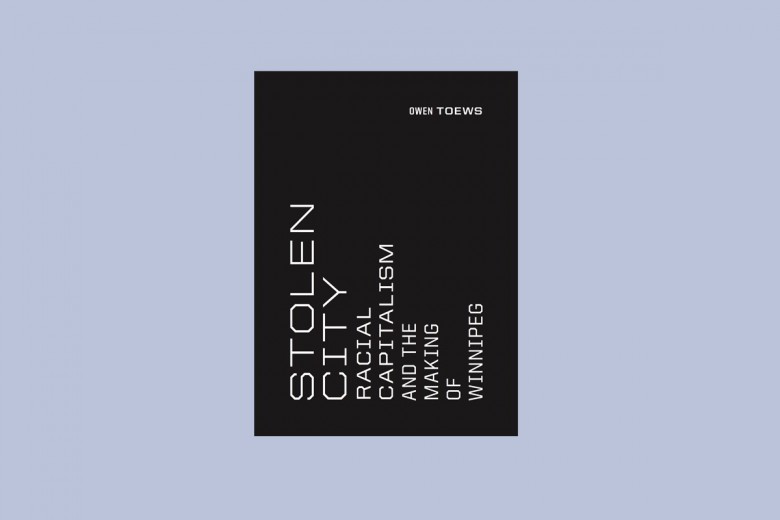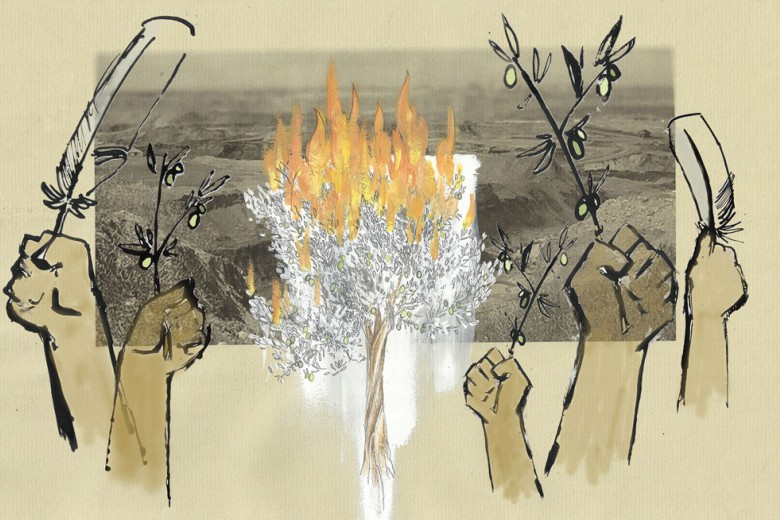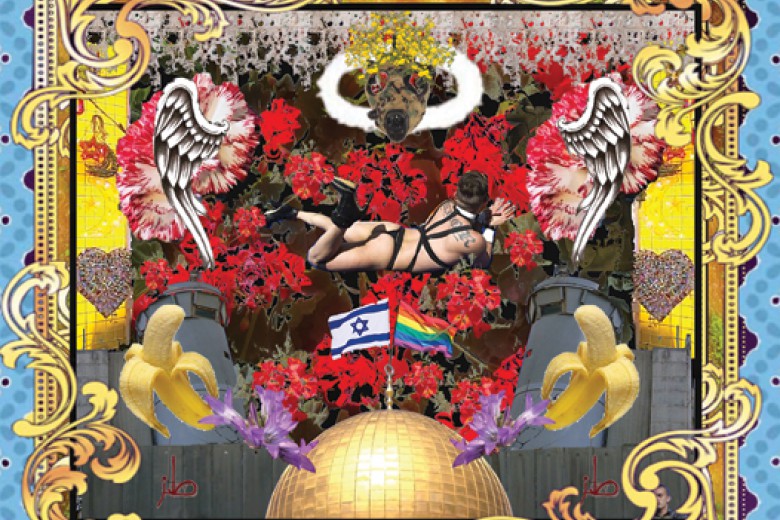“My soul is besieged by the war even though my body has left the area.” In this quote from February 2024, Wesam Almadani captures the emotional toll of witnessing the genocide of Palestinians from abroad. Drawing from her experience of surviving the 2014 attacks on Gaza, she shares how helpless she feels watching the news 24/7 from her home in Egypt; as I do the same in Canada, her words resonate deeply with me.
During the 2011 Libyan revolution, I remember answering phone calls from family members, their voices trembling as missiles dropped in the background, asking me about my day to distract themselves from the war. My mother would make sure my siblings and I had a chance to hear our family members’ voices when they called, knowing it might be the last time we heard from them. This feeling of powerlessness is etched into my being and fuels my commitment to the Palestinian and all other liberation movements.
Since October 2023, all I can think about is Gaza. The photos and videos shared all over social media by Palestinians under attack, like that of a Gazan father stepping out of his van holding two plastic bags containing the remains of his child, expose the true nature of the Zionist regime. Gazans’ determination in documenting Israel’s war crimes serves as a reminder that the struggle against Zionism is not just for Palestinians to bear – it is a shared responsibility for all people of conscience worldwide.
As we pass the half-year mark of Israel’s current genocidal assault on Gaza, I spoke with organizers about how to sustain the movement’s momentum in a way that can provide long-term support for the liberation of the Palestinian people and all those suffering under the thumb of the Zionist regime. In this conversation, we reflect on the movement’s decades-long history in Canada, the current moment, and the movement’s future.
On the panel:
Hanna Kawas is chairperson of the Canada Palestine Association, a writer, and was a broadcaster as co-host on Voice of Palestine for over 30 years.
Sarah Abdul-Karim is an organizer with the Palestinian Youth Movement in Ottawa. She has several years of experience organizing in the community and in student organizations.
Moe Alqasem is a Palestinian community organizer, trade unionist, and writer based in Toronto. Originally from Nablus, he is active in the Palestinian national liberation and labour movements. He currently sits on the CUPE Ontario’s executive board.
Zahia El-Masri is Palestinian, a longtime feminist activist and organizer, and a passionate social justice advocate and speaker on Palestinian rights.
Ali Mallah is an anti-war, community, and political activist.
Sarah Abdelshamy is an organizer with the Palestinian Youth Movement in Montreal and an advocate for Arab and Palestinian liberation from Zionism and imperialism.
Hassan Husseini is a longtime labour and international solidarity activist, and a member of the national steering committee of Labour 4 Palestine – Canada. He is a national negotiator at the Public Service Alliance of Canada.
As people in Canada – the heart of the settler-colonial empire – what is our role in the movement to free Palestine?
Hannah Kawas
It’s really important for the Canadian solidarity movement to expose Canada’s complicity in our dispossession and genocide. Emphasizing this and supporting the BDS (boycott, divest from, and sanction Israel) movement is crucial. The international boycott helped the South African people’s struggle, and it is critical to the Palestinian struggle as well. However, what determined their victory was the resistance and liberation struggle of the South African people themselves and their sacrifices, and it’s the same for the Palestinian liberation movement.
The most vocal and actual rebellion comes from within Palestine. As a solidarity movement and Palestinians in the diaspora, our role is to follow the lead of the movements within Palestine.
Sarah Abdul-Karim: A crucial role we play is highlighting Canada’s involvement in imperialist interests in Palestine and the Middle East. As we’re watching this genocide, it has become even clearer that Canada is one of Israel’s most loyal supporters. Organizers need to emphasize the connections between the Canadian government’s imperialist agenda and corporate interests and how they directly affect the realities faced by the Canadian working class.
Since Israel’s foundation, Canada has assisted U.S. military interests in the Middle East, backing a strong client state (Israel) to help control the region’s oil, and keep Arab nationalism in check. The Canada-Israel Free Trade Agreement (CIFTA) has enabled billions of dollars in trade between the two countries. As Martin Lukacs reported in The Breach, “Canadian companies built the Israeli Air Force’s communications system, and components for bombers and helicopters, unmanned drones and maritime patrol aircraft, surveillance systems and body armour. They’ve even helped build the highways used by Israeli settlers that are off-limits to Palestinians.” These companies have essentially built the infrstrastructure for Israel’s system of apartheid.
Canadian arms sales to Israel as it commits a genocide right now is the most violent example of Canada’s support to Israel. Canada arms the Zionist regime to the tune of tens of millions per year, selling explosives and aircrafts. The Canada Pension Plan, as well as other public pension plans, invests in weapons manufacturers selling to Israel. All of their stocks increase in price during global conflicts. Canada has a vested interest in Israel’s occupation of Palestinian lands.
We need to not just talk – we must stop the arms trade that is coming from the imperialist core.
Moe Alqasem: The role of people in Canada is to organize and build power in our communities. During the Sword of Jerusalem battle, our people coined the ingenious phrase "وحدة الجبهات" meaning “unity of all fronts" – that’s what we need at this moment. Our people and supporters don’t all have to agree all the time; we just need to be united as a front against Zionism until Palestine – every speck of Palestinian soil – is completely liberated. That is the original mandate of our people and the mandate that we in Canada should keep in mind: removing the dagger of imperialism and colonialism from the heart of the Arab lands.
The strategies used by Canadian organizers in the Palestinian solidarity movement have ebbed and flowed since the movement was started decades ago. One important lesson was recognizing the limitations of an international-humanitarian-law framework; over generations, we’ve realized, repeatedly, that we can’t appeal to a government that comes from a commonwealth that was embroiled in the colonial history of our region.
I want workers to recognize the shared struggle they have with Palestinians and organized labour in Canada to reach that level of disruption where a critical number of people strike for Gaza.
Organizers continue traditional approaches like meetings with elected federal and provincial representatives and city councillors, but a growing number of people are willing to confront imperialism and colonialism more assertively. Our community and supporters are confronting the so-called “civil servants” and “elected officials” in public spaces and banning them from events, places of worship. We’ve also shut down the enterprises that are complicit in the genocide against our people and boycott the complicit public and private interests.
Zahia El-Masri: If you look at the 1987 Intifada or any other key dates, and also more recently, the most vocal and actual rebellion comes from within Palestine, like in April 2024 when Palestinians began tearing down the apartheid wall. The Palestinian struggle has rallied the entire world, and as a solidarity movement and Palestinians in the diaspora, our role is to follow the lead of the movements within Palestine.
What are the greatest challenges facing the movement in Canada today?
Sarah Abdelshamy
We’re also seeing heavy repression at universities like in November 2023 when McGill’s student union’s pro-Palestine policy was halted by a Quebec Superior Court judge after a complaint from a student backed by B’nai B’rith, even though the policy was endorsed by 78 per cent of voters. Zionists have also threatened and physically attacked pro-Palestine protesters several times, such as the case in Montreal when a woman hit Imane Najar’s car, which had a Palestinian flag on it, according to Najar. Najar filmed the woman who yelled at her that she hopes Najar is assaulted in front of her children and dragged through the streets.
The struggle against Zionism is not just for Palestinians to bear – it is a shared responsibility for all people of conscience worldwide.
Even though these incidents have been documented, Zionist haven’t faced mass public scrutiny for their actions, whereas protests for Palestinian liberation are consistently branded as “hateful” and “violent” by the media and politicians.
Despite these challenges, people are steadfast in their resistance. So many people facing repression continue organizing, delivering bold speeches and pursuing legal action against their employers. Mass demonstrations persist, with thousands braving harsh weather conditions, refusing to capitulate to this repression. The movement’s global nature provides a sense of protection; the continuous momentum and widespread participation from around the world demonstrates that we are not alone, but part of a global movement for Palestinian liberation.
Hanna Kawas: For decades, the Canadian government has tried to repress us at any opportunity. Two weeks after I arrived in Canada from Lebanon in 1974 I got a visit from the RCMP. They knocked on my door and said, “can we come in to have coffee?” I asked them if they had a warrant, they said no, so I told them no, sorry, you can’t come in. They are trying to intimidate people into not being politically active.
Sarah Abdul-Karim
What impact does this repression have on the movement?
Bylaw officers ticket Hassan Husseini for using a megaphone at a pro-Palestine rally. “Having lived under the brutal Israeli occupation of Lebanon & used as a human shield by IOF soldiers, it’s gonna take way more than a $490 intimidation ticket [...] to stop me from calling out Israel’s war crimes & Canadian complicity.” Photo courtesy of Husseini.
But people have learned from the post-9/11 period and are stepping up and taking action. We’ve developed a number of mechanisms to support each other to better withstand repression. We’re building coalitions to protect ourselves and push back against the criminalization of dissent that we are continuing to face. One community member in Ottawa was paid a visit at her home by Ottawa City bylaw officers to serve her a ticket for using a megaphone the day prior. Even after that, she said: “This is not going to stop me. In fact, I’m more resolute now to continue speaking up because of this increased harassment.”
If Palestinians hadn’t resisted state repression tactics in our decades of organizing for Palestinian liberation in Canada, then you wouldn’t see us rallying anywhere today.
That being said, however, we do have a lot of members in the Arab and Muslim community who are shying away from action because they fear this repression and losing their jobs, and it’s hindered their desire to remain involved in the movement. To reassure community members, Labour 4 Palestine, of which I’m a member, is providing legal support to people being targeted at their workplaces for their pro-Palestine activism. We also started a legal defence fund to cover the cost of tickets and bail to provide dissenters with a sense of solidarity and to give people confidence to stay engaged despite the challenges they may encounter.
Zahia El-Masri: A lot of us who are organizing have fled from war-torn areas. That is the reason we are here in so-called Canada. So, organizing is accompanied by a lot of fear about the possible repercussions. Will going to a protest have an impact on our immigration papers? A lot of Palestinians in Canada who came from Palestine have that issue and so do people who came as refugees.
Moe Alqasem
Palestinian and allied organizers have been organizing for Palestinian liberation for decades in Canada. What about the movement’s present moment stands out?
Hassan Husseini: The movement for Palestinian liberation in Canada started taking shape after the Naksa in 1967 when Israel expelled hundreds of thousands of Palestinians and stole the land in Palestine, as well as in the Syrian Golan Heights and the Egyptian Sinai Peninsula. At the time, our numbers were very small; the Palestine solidarity movement generally was anchored by first-generation Palestinians, Arabs, and Muslims coming to this country and working on solidarity actions.
Right now, we have a much more diverse movement in Canada and across the world. There are third-generation Palestinians and Arabs organizing and leading the movement. We are also more connected with other diasporic communities that come from countries impacted by Israeli and Western imperialist onslaught. The movement is also better connected with the struggle for Indigenous sovereignty here in Canada.
I’m going to witness the downfall [of Israel] in my lifetime. I don’t have many years left, but I will witness it. Victory is coming; Palestine will be free from the river to the sea.
The change in the composition of our movement is simultaneously happening alongside people’s increasing political consciousness that sees various struggles in Canada and across the world as interconnected. In turn, this is generating concrete forms of solidarity and mutual support between communities, groups, and organizations advocating for liberation of people and lands. This is bringing together organizations and causes that include the Indigenous Land Back movement, Black Lives Matter, Palestinian liberation, and the anti-war/anti-imperialist movement.
Hanna Kawas: I am really pleasantly surprised to see the initiative from different groups aside from the solidarity movement of diasporic Palestinians and Arabs. There are organized demonstration in many towns and cities in the lower mainland of B.C. that Palestinians and Arabs haven’t organized. Allies did it on their own. There’s Bike4Palestine and Health Workers Alliance for Palestine. People are coming out in support of Palestinian liberation from everywhere because they are seeing the true fascist and racist face of Zionism.
Sarah Abdelshamy: In this moment we’re seeing the impact that organized labour could have. In November 2023 in Belgium, port workers refused to load and unload weapons going to Israel, highlighting the power of rank-and-file workers to not just raise the consciousness of the masses, but to stop the cogs of imperialism and capitalism as they serve Zionist interests. In December 2023, over half a million public-sector workers in Quebec struck against their employer, the Quebec government. I want workers to recognize the shared struggle they have with Palestinians and organized labour in Canada to reach that level of disruption where a critical number of people strike for Gaza.
What can non-Arab allies do to best support the Palestinian liberation movement in Canada?
Moe Alqasem: For non-Arabs, including our comrades from the region, particularly in the Middle East, across Africa, and central and east Asia: it’s no longer enough to just be an ally to Palestinians. We need to move past allyship and toward internationalism, converging our struggle and path to our liberation.
We need to not just talk – we must stop the arms trade that is coming from the imperialist core. The governments that signed off on the Balfour Declaration and facilitated the Oslo Accords are essentially the same governments that are facilitating this genocide.
It’s time people see the true character of the genocide-supporting Canadian and American governments to understand that they have a stake in this struggle against Zionism. Zionism needs to be challenged and be exposed in the public for what it really stands for. It needs to become unacceptable to support Israeli apartheid and settler colonialism in any society. It’s time to force our way back into liberation.
“We need to go back to our groups and urge for unity around the Palestinian cause. If we cannot unite for a free Palestine, take the word Palestine out of your mouth – Palestine is bigger than all of us.”
Hanna Kawas: I am optimistic. At a recent demo, I said that the Zionist project and the imperialist project are going to fail and I’m going to witness the downfall in my lifetime. I don’t have many years left, but I will witness it. Victory is coming; Palestine will be free from the river to the sea. That will hopefully signal the end of U.S. imperialism all over the world because if the U.S. loses the Middle East, that’s the end of the U.S.’s reign everywhere.
Ali Mallah: I’m like Hanna, I’m very optimistic. Over 100 years since the foundation of Zionism and the Zionist state, terrorists are not able to break the Palestinian spirit. This is not poetry; this is the daily life of Palestinians. Zionists destroy their homes and imprison and kill the men, women, and children, but Palestinians have not surrendered and will never surrender. The will, anger, and emotion are there and will erupt in a general intifada in Palestine (intifada is an Arabic word for revolution to end oppression).
As we strategize, we keep coming back to South Africa and how the anti-apartheid movement was successful. We must keep in mind that Canada was among one of the last countries to join the anti-apartheid cause. The challenge ahead is a difficult one. It wasn’t at the early stages that this country changed its mind; it’s when they realized that they couldn’t defeat the will of the people.
For all of us in Canada, we need to go back to our groups and urge for unity around the Palestinian cause. If we cannot unite for a free Palestine, take the word Palestine out of your mouth – Palestine is bigger than all of us.
*The opening quote and some of Ali Mallah and Hanna Kawas’ quotes, and some of Zahia El-Masri’s, have been translated from Arabic and French respectively by the author and interviewees.


_1200_675_90_s_c1_.jpg)



_780_520_s_c1.png)
